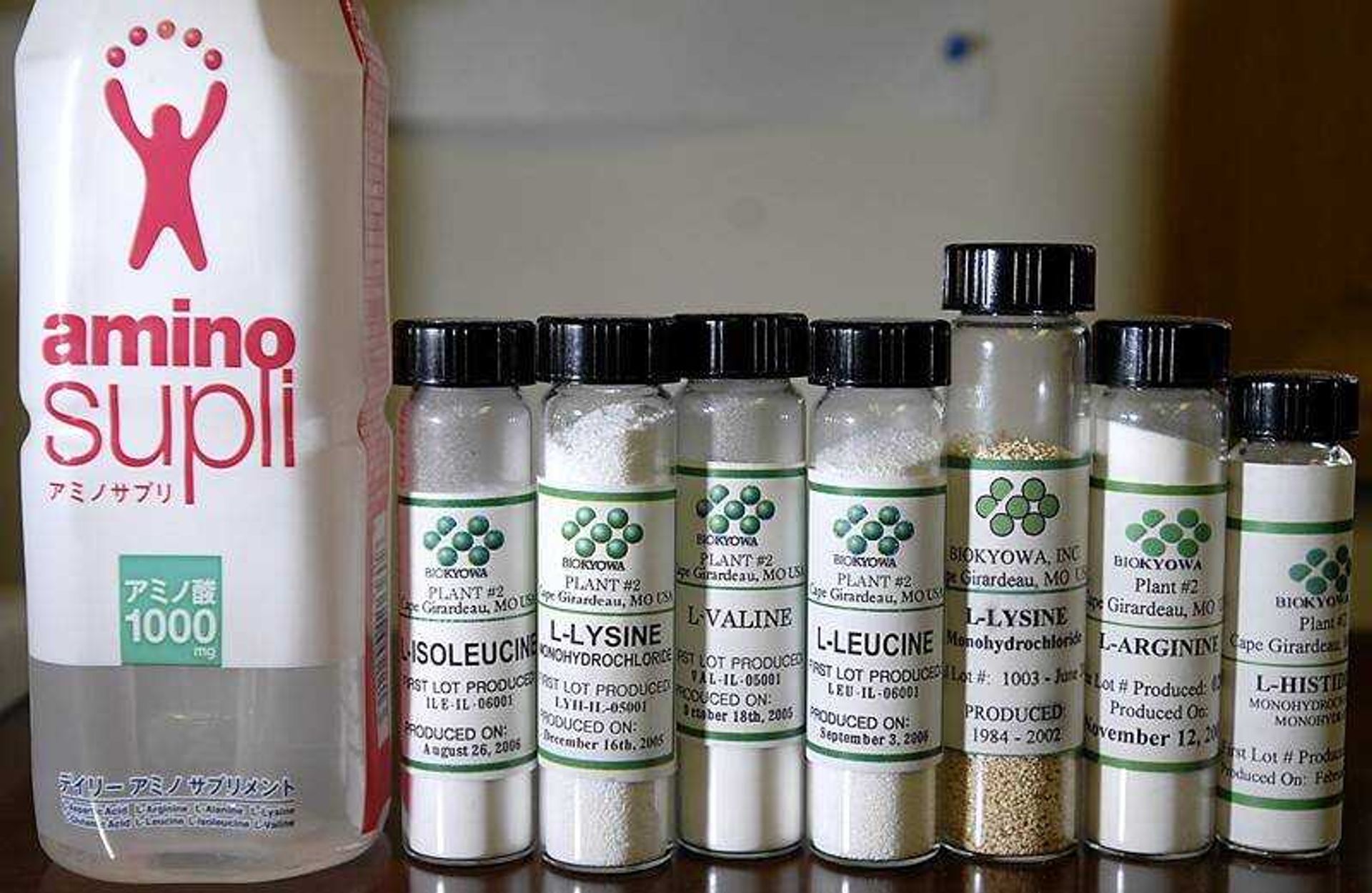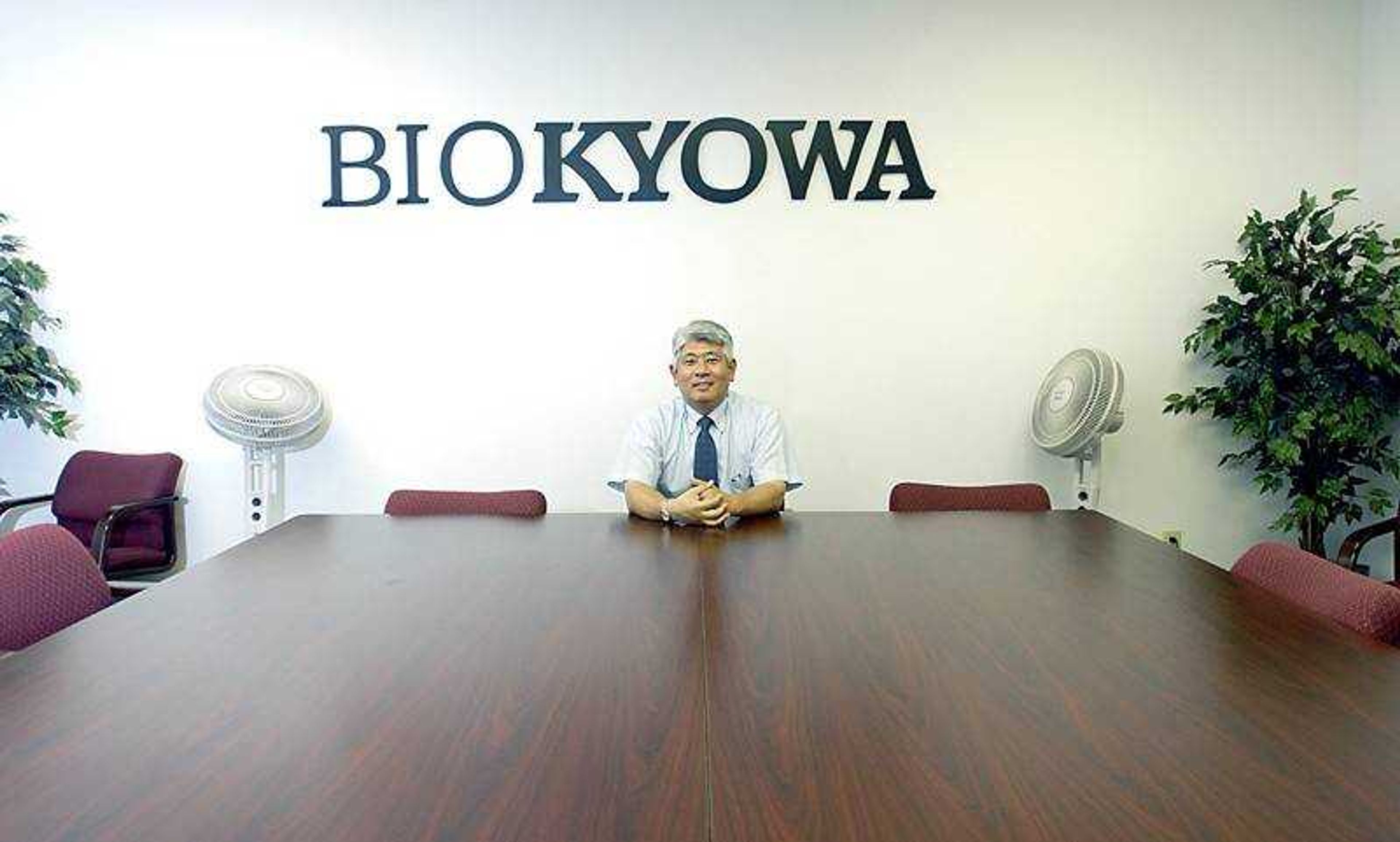Return to BioKyowa
A manufacturing company using corn syrup as a key raw material lately would find itself with rapidly escalating costs as the construction of new ethanol plants drives up corn prices. But at BioKyowa, the amino acid producer that employs 110 people at its Nash Road plant in Cape Girardeau, technology is helping beat the cost run-ups, and new company president Toshihiko Hirao said it's his job to keep things humming along...
A manufacturing company using corn syrup as a key raw material lately would find itself with rapidly escalating costs as the construction of new ethanol plants drives up corn prices.
But at BioKyowa, the amino acid producer that employs 110 people at its Nash Road plant in Cape Girardeau, technology is helping beat the cost run-ups, and new company president Toshihiko Hirao said it's his job to keep things humming along.
BioKyowa cut 25 jobs in 2006 as part of a major reorganization to cut costs in the face of global competition. Employment numbers are stable now as the company seeks to increase production by eliminating bottlenecks that restrict volume at the plant.
"We are suffering from the price increase of corn syrup, electricity and gas rates," Hirao said. "But our technology improvements have more than offset the increases. Our production costs are going down year by year."
Hirao is taking over the plant as his parent company, Kyowa Hakko, is reporting strong earnings and enjoying an increase in shareholder value as its stock price has risen 46 percent in the past year. The stock price closed Friday at 1,155 yen, or about $9.53, a share.
The 54-year-old Hirao is only new to his job; he's an old hand at the plant that was one of the first significant Japanese investments in Missouri when it opened in 1984.
Hirao was part of the team that opened the plant in May of that year. He returned for a second, longer stint in 1989, staying for eight years and settling with his wife, son and daughter. His last five years were in the job of vice-president before returning to Japan, where he was most recently a plant manager in Ube, Japan.
"I am excited about being back," he said."I am glad to work for BioKyowa again."

Married with two adult children, Hirao was joined by his wife in May. His children, both of whom attended Cape Girardeau Public Schools when he was previously assigned to Cape Girardeau, remained in Japan. His daughter, aged 25, works for an American company in Yokohama, Hirao said. His son just graduated from college.
Hirao replaced Terumi Okada, who was president of the company for about two years.
Rural Missouri is a much different world than Japan, where he lived in Tokyo and Ube in Niigata Prefecture since departing Cape Girardeau.
"There are many good things in Tokyo and many bad things in Tokyo," he said. One of the bad things is the daily commute to work, more than an hour or longer each way in a stuffed train, he said. "My daughter is taking a little more than two hours from her home to her office each day."
Getting to the office is a little easier in Cape Girardeau, he said. On an average day, it takes about 15 minutes.
Hirao was trained as a forest chemist at Tokyo University, graduating in 1977. His first 11 years were spent in the Kyowa Hakko's research department, where he applied the science of fermentation to improvements in the company's manufacturing processes.
"Hakko" is the Japanese word for fermentation. The company produces a range of products from pharmaceuticals to spices, but the fermentation processes remain a significant portion of the parent company's $3 billion in annual sales.
And the Cape Girardeau plant is a key part of that business, Hirao said.
The Cape Girardeau plant "has a very important position in the Kyowa Hakko group," he said. About 70 percent of Kyowa Hakko's sales of amino acids are produced by BioKyowa, he said, and more than 50 percent of the production of the Cape Girardeau plant is exported outside the United States.
The plant last went through a significant expansion in 1999. Part of Hirao's job is to increase production, but that doesn't mean any more expansions in the near future.
"At the present we don't have a realistic, measured expansion idea," Hirao said. "We are focusing on process improvement and productive capacity in the next three years."
Exactly what those improvements will be is proprietary. In fact, corporate security at BioKyowa dictates that visitors aren't allowed to take pictures inside the plant.
"There are many secret things inside our plant," Hirao explained. Pictures of any kind would help competitors understand the technology being used, he added.
"You wouldn't believe what a technical guy can learn from a few pictures," added Bill Hinckley, the plant's manager.
The amino acids produced in bulk at the plant are sold to manufacturers who prepare it as nutritional supplements such as glutamine or arganine, which is said to have benefits for a healthy heart. Purchase glutamine in powder or tablet form, Hirao said, and "it was probably produced at BioKyowa."
rkeller@semissourian.com
335-6611, extension 126
Connect with the Southeast Missourian Newsroom:
For corrections to this story or other insights for the editor, click here. To submit a letter to the editor, click here. To learn about the Southeast Missourian’s AI Policy, click here.







